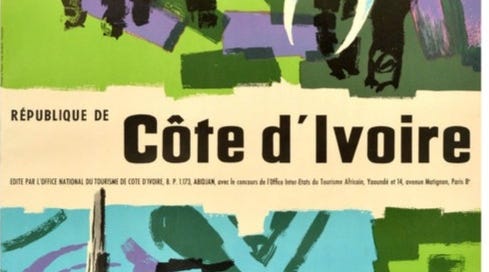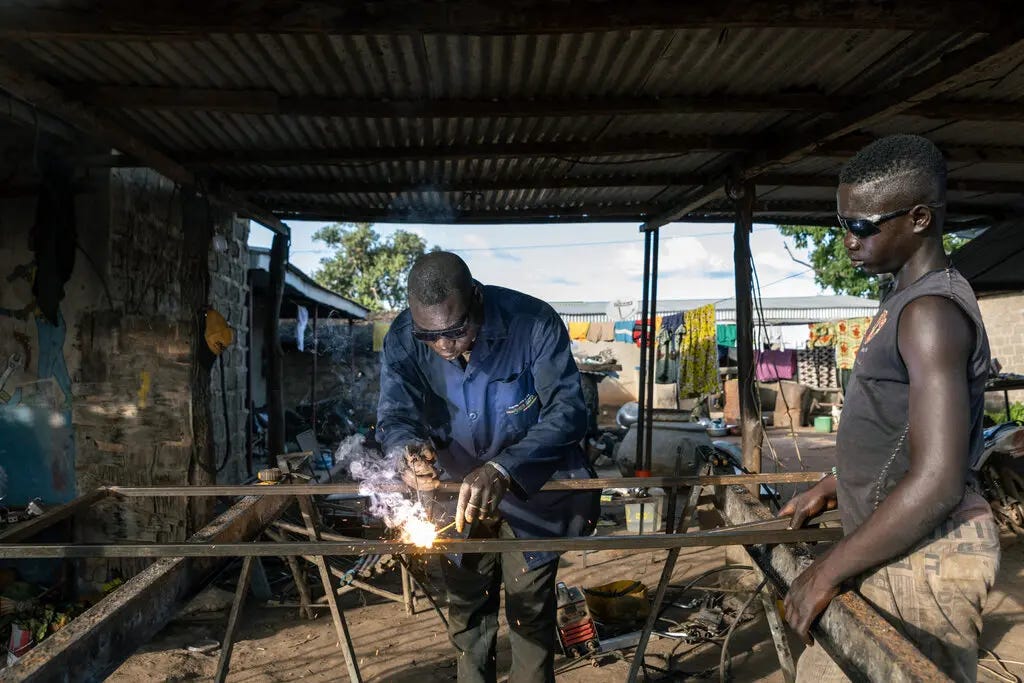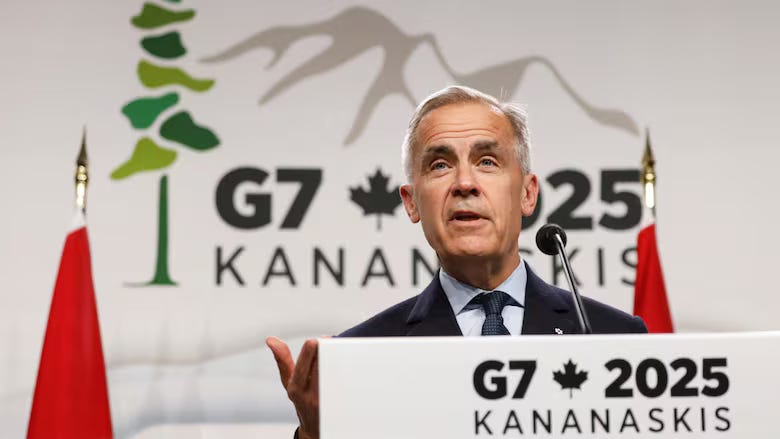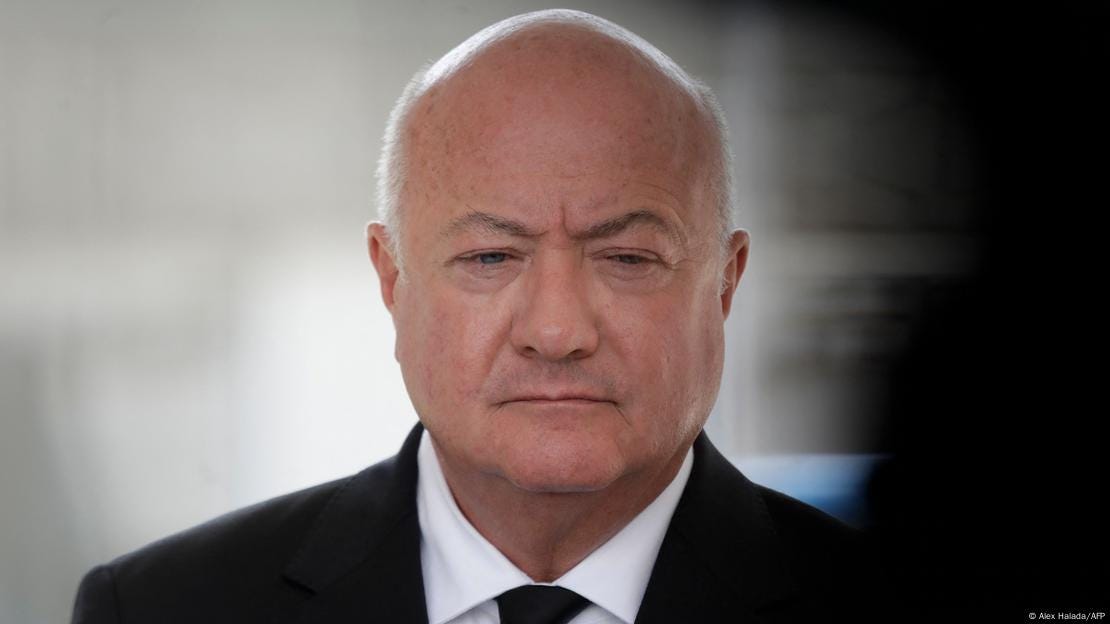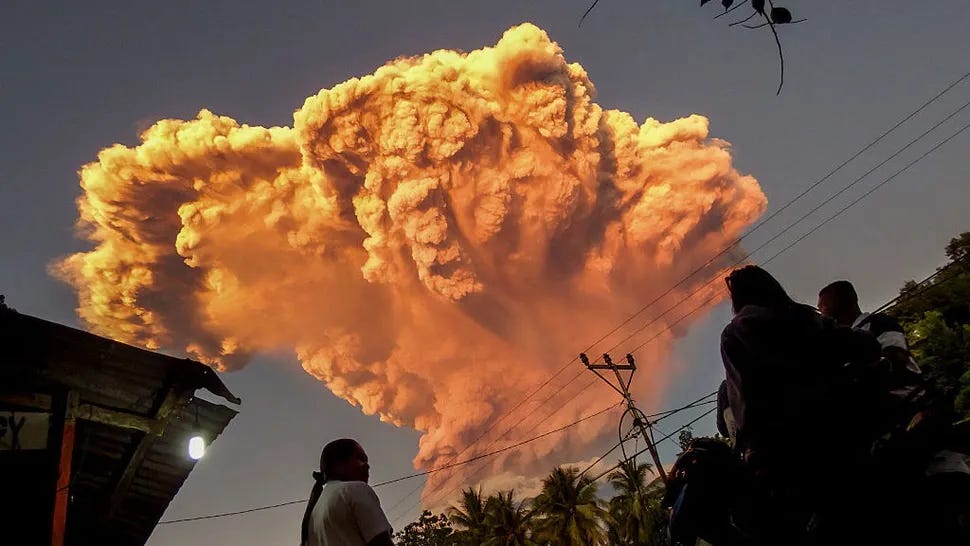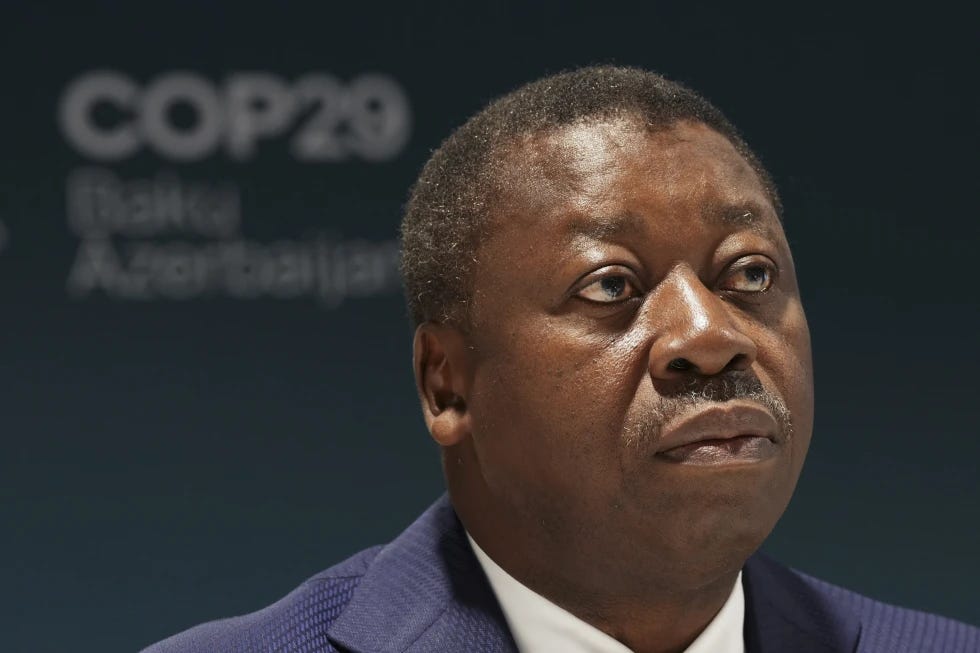Key Themes: Government Response to Crisis, Balancing Security and Civil Liberties, Impact on People & Infrastructure, and Regional & Global Security Challenges
1️⃣ ‘As U.S. Aid Dries Up, West Africa Fights Expanding Jihadist Threat’ - https://www.nytimes.com/2025/06/16/world/africa/africa-terrorism-trump-ivory-coast.html
The Ivory Coast, like other Sahel countries, is under increasing pressure from jihadists as U.S. financial support has declined. In 2023, the Sahel accounted for nearly half of all terrorism-related deaths worldwide, with groups such as Al Qaeda and Islamic State intensifying their influence. Burkina Faso, Mali, and Niger have seen key trade routes and supply lines overrun, with jihadist groups now approaching coastal nations like the Ivory Coast. African and American officials fear further terrorist takeovers, which would destabilize West Africa even more. Control of West African ports is crucial for global shipping, and a jihadist-controlled coastal zone could escalate human trafficking, drug smuggling, and arms trading.
The United Nations counterterrorism board has warned that the region stretching from northern Nigeria to southern Mali is at risk of falling under terrorist control. Burkina Faso, Mali, and Niger are currently governed by military juntas, while Ivory Coast, Ghana, Togo, and Benin struggle to defend against emerging threats. Historically, Western nations, including the U.S., have worked closely with coastal West African states on counterterrorism. However, recent funding cuts under the previous Trump administration have strained national resources. French and American troops have been expelled from the Northern Sahel and are regrouping in coastal nations such as the Ivory Coast.
Despite an ongoing international military presence, jihadists in the region move almost unfettered. Locals cite high unemployment and economic instability as motivations for many young men to join insurgent groups. These organizations offer an escape from poverty, using both incentives and threats to attract recruits.
With the growing threat of jihadism reaching the coastal Sahel, what strategies can local governments and the international community adopt to reduce these risks?
2️ ‘Trade, a sudden exit, Middle East conflict - five takeaways from G7’ - https://www.bbc.com/news/articles/cpqnjx1qw9po
Canada hosted this year’s G7 meeting in Kananaskis, Alberta, bringing together leaders from Italy, the U.S., France, Germany, the U.K., Canada, and Japan to tackle multiple global challenges. Trade dominated the agenda, especially following U.S. President Donald Trump’s April 2 “Liberation Day” global tariff announcement.
Tensions between Israel and Iran escalated during the summit, prompting the White House to cite the conflict as the reason for Trump’s early departure. That departure reshaped the summit schedule and thrust new agenda items into focus, though before leaving, all G7 leaders agreed on one point: de‑escalation in the Middle East.
Other world leaders also took part. Ukraine’s President Volodymyr Zelensky attended and secured additional aid from the Canadian government and Prime Minister Mark Carney, but no formal security guarantees were issued. Indian Prime Minister Narendra Modi met with Carney to discuss rising tensions between Sikh Canadians and the Indian state; while they agreed to address transnational security concerns, no joint statement resulted.
Several topics garnered agreement among the leaders—artificial intelligence, quantum computing, migrant smuggling, and critical minerals—though climate change was notably absent from a unified declaration. Carney held trade discussions with Trump, but no formal deal was reached. However, Trump’s administration did finalize a trade deal with the U.K.’s Prime Minister Keir Starmer, and ongoing discussions remained underway with both Canada and Japan. European Commission President Ursula von der Leyen described the talks as “complex but ongoing.”
Carney announced Canada’s ambitious post‑G7 goals: driving economic sovereignty within the bloc, reducing reliance on the U.S. market, and expanding defense technology cooperation with the EU. Prior to his departure, Trump remained focused squarely on trade negotiations.
With so many leaders in attendance and significant disruptions throughout, what should be considered the most important takeaway from this year’s G7?
3️⃣ ‘Austria plans gun control measures after school shooting’ - https://www.dw.com/en/austria-plans-gun-control-measures-after-school-shooting/a-72961605
Austria is moving to enact stronger gun regulations following a tragic school shooting on June 10, when a 21‑year‑old former student entered his former high school in Graz and killed 10 people in a national tragedy. Compared to other European countries, Austria has relatively lax gun laws: any adult who is not banned from owning weapons can buy a shotgun, and anyone over 21 who passes a permit process—including a psychological test—can obtain a Glock. This shocking event has prompted the coalition government under Chancellor Christian Stocker to propose a new agenda for gun safety.
The proposed measures include: Raising the minimum age for handgun permits from 21 to 25, extending the waiting ("cooling-off") period from 3 days to 4 weeks, and requiring permits to expire every 8 years.
Mental health has also taken center stage amid the belief that it is a root cause of rising gun violence. Austria plans to increase the number of school psychologists to identify potential offenders early and provide necessary support. It was revealed that the assailant had failed a mental health screening when trying to join the Austrian military, but the military is currently unable to share such information publicly. The government is therefore prioritizing improved information sharing between military authorities and firearm licensing agencies.
With gun violence rising across Europe, are these measures sufficient to prevent future attacks?
4️⃣ ‘Bali flights cancelled after Indonesian volcano spews 10km-high ash tower’ - https://www.theguardian.com/world/2025/jun/18/bali-flights-cancelled-volcano-eruption-indonesia
Indonesia has seen both tourism and labor disrupted following a major volcanic eruption near Bali. Mount Lewotobi Laki-Laki erupted on Tuesday, prompting the government to raise the nation’s disaster alert to its highest level—Level 4. This “watch” level has placed local residents on high alert for potential rain-fed lava floods. The public has been forced to evacuate immediately to a designated safe radius, protecting them from both lava and harmful volcanic ash.
Mount Lewotobi Laki-Laki’s eruption produced a plume of smoke reaching 10,000 meters into the air. The most directly affected areas include Boru Village, Hewa Village, and Watobuku Village, with some residents from Nurabelen Village also evacuating.
All incoming flights to Bali from various nations and airlines have been canceled or rerouted, with other cities also experiencing a reduction in air traffic. The volcano had erupted multiple times in November of last year, resulting in at least nine deaths and thousands of evacuations. Indonesia is located within the Pacific Ring of Fire, a region known for intense volcanic activity.
Mount Lewotobi Laki-Laki is still being actively monitored by the Center for Volcanology and Geological Disaster Mitigation (PVMBG), and has not yet been fully reclassified. The volcano has a long history of eruptions, with activity recorded since the early 20th century.
With the volcanic threat continuing, how can the Indonesian government adequately respond and support local villagers?
5️⃣ ‘Togo suspends French state-owned broadcasters RFI and France 24 for alleged biased reporting’ - https://apnews.com/article/togo-suspension-rfi-france-24-reporting-38db0a35046c106b02c3fe51359be71c
Togo has moved to temporarily ban French news agencies following accusations of propagandized reporting. Citing quality control concerns, Togo found the networks RFI and France 24 guilty of failing to meet journalistic standards. Both outlets have been suspended for three months, with Togolese officials stating, “Freedom of the press cannot be synonymous with disinformation or interference.”
Mass complaints were filed against both organizations, and the Togolese High Authority for Audiovisual Communication deemed the French media outlets biased and disingenuous. This comes amid rising tensions surrounding President Faure Gnassingbé, who recently enacted a controversial constitutional amendment allowing for potential indefinite rule—an action that several international media sources have labeled a legalized coup.
Foreign press outlets have grown increasingly critical of Gnassingbé's government, which in turn has responded with escalating hostility toward outside scrutiny. The Togolese Media Observatory condemned the media suspensions, calling them authoritarian and a threat to press freedom.
Togo has banned public protests under law since 2022, yet demonstrations are expected next week in response to both the media blackout and the constitutional changes. With growing governmental oversight and the consolidation of executive power, how will the Togolese public respond?
Photo Credits:
Koko Kambire, a welding trainee, at a workshop in Kafolo, a village in northern Ivory Coast. The government sponsors job training programs in the country but some trainees still lack paying jobs after six months of training. [Elian Peltier, The New York Times]
Canadian Prime Minister Mark Carney answers questions from the press. [Amber Bracken, Reuters]
Chancellor Christian Stocker said his government would 'fulfill its responsibility' on preventing another mass shooting. [Alex Halada, AFP]
Mount Lewoboti Laki-laki produced a huge column of ash that extended more than 6 miles into the sky. [STR/AFP, Getty Images]
Togo President Faure Gnassingbe attends the COP29 U.N. Climate Change Summit, in Baku, Azerbaijan, Nov. 13, 2024. [Peter Dejong, AP Photo]

